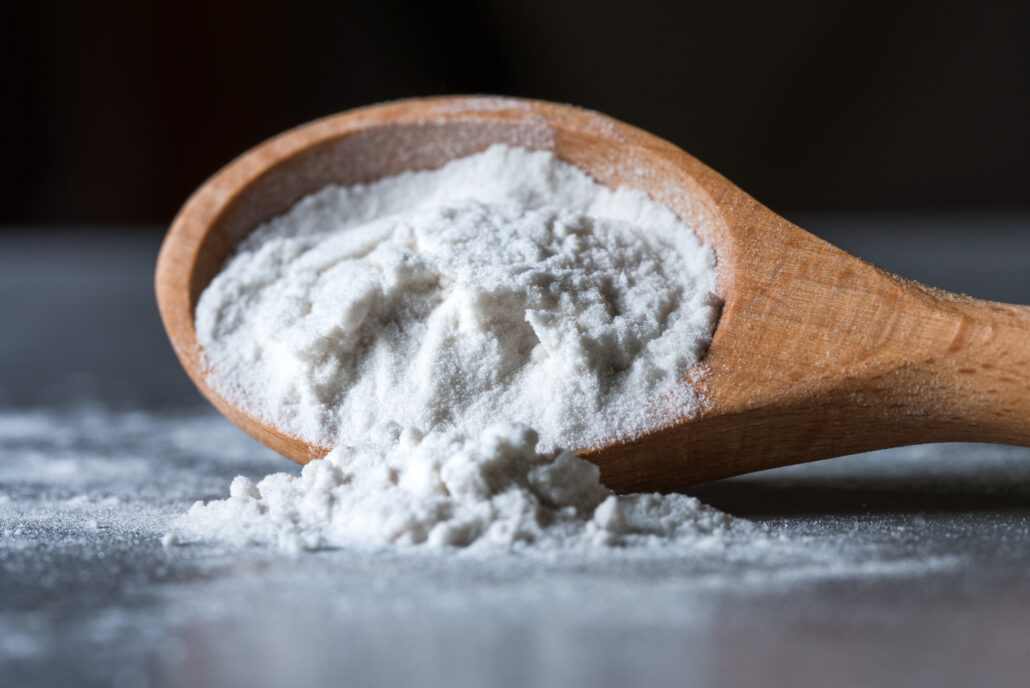CHECK OUT OUR MEDIA MENTION IN FOOD INGREDIENTS FIRST
By Elizabeth Green
13 Dec 2021 — Comet Bio has invested an undisclosed sum in a food manufacturing facility in Denmark with RE Energy, a firm specializing in environmental sustainability. The move will see Comet Bio upgrade and expand its existing facility in Kalundborg to supply over 4 million kg of its Arrabina prebiotic fiber per year.
Speaking to NutritionInsight, Comet Bio CEO Rich Troyer pegs this as an important milestone for the company as it enables it to serve its customer’s needs for prebiotic fibers and ultimately gut health in a more reliable way.
“It will allow us to complete various certifications that are important for some of our customers and are difficult to do using co-manufacturers. This project also creates positive momentum for developing and building out our growth plans for the future.”
Demand for prebiotic fibers rise
Hannah Ackermann, registered dietitian and communications manager at Comet Bio, believes the company will be well-positioned to keep up with the growing customer demand for its Arrabina prebiotic fiber
“The demand for prebiotics has increased significantly in recent years,” she underscores. “Consumers are recognizing prebiotics’ role in supporting digestive health, immunity, metabolism and potentially other areas such as cognition or mood.”
“In response, F&B companies are increasing prebiotic front-of-pack claims, which is driving the over 10% annual growth for the category,” she adds.
One of the key advantages of Arrabina is its potency, allowing a front-of-pack prebiotic claim with only half the inclusion level of other prebiotics.
“Though effective at lower levels, our clinical research shows that Arrabina is well tolerated even when consumers take three or more servings,” comments Ackerman.
“This is important because consumers often do not abide by standard serving sizes, which can lead to GI distress if the prebiotic fiber is not well tolerated at higher levels. This is particularly true for the more indulgent and tasty snacks with prebiotic fiber that are increasingly coming to market, such as chocolate bars, baked goods and puffs.”
Expansion in food applications and beyond
Arrabina can also be used in a wider variety of formats, including coffee, tea, chocolate, nutrition bars, protein powders and baked goods. By incorporating prebiotic fiber into existing products already a part of daily routines, consumers can more easily meet their gut health needs and the recommended daily fiber intake, flags Ackermann.
“Consumers are paying attention to gut health now more than ever, and they are making the connection between diet and a healthy gut microbiome,” she states. As they gain a deeper understanding of how what they eat affects their gut health, there will be even more demand for foods that contain pro- and prebiotics.
However, the science around the microbiome is still in its infancy. “The microbiome was only fully mapped a few years ago, and scientists are continuing to learn more about how the gut microbiome can affect overall health. One area of particular interest is how the gut microbiome can affect immunity,” Ackermann further explains.
“Research suggests that over 70% of our body’s immune system resides in the gastrointestinal tract. Investing in clinical trials is pivotal to better understanding this link,” she adds.
Prebiotic fibers can offer a solution to help support overall digestive and immune health by promoting healthy bacteria growth. Unfortunately, Ackermann warns, many popular prebiotic fiber options require high inclusion levels to be effective.
“For example, higher inclusion rates render many prebiotic supplements, food, and beverage formats impractical. Many prebiotic fiber options, including inulin, are also oligosaccharides, a type of fiber that the popular low-FODMAP diet cautions individuals to avoid due to tolerability concerns,” she highlights.
Novel prebiotics evolve
Fortunately, a new class of premium prebiotic fibers is coming to market with lower inclusion rates and better tolerability to address these concerns. According to Comet Bio, these prebiotic fibers are tailored to offer functional benefits while being more versatile and easier to incorporate.
Comet Bio’s Arrabina is an Arabinoxylan prebiotic fiber, which has a longer chain polysaccharide structure that makes it better tolerated by the gut than oligosaccharides.
Results from Comet Bio’s latest clinical trial revealed that consumers could take up to 15 g per day of Arrabina with no negative gut or bowel reaction. Arrabina also boasts “superior potency” with effective inclusion levels as low as 3.4 g.
“Novel prebiotic fiber options with lower inclusion levels and superior tolerability will make it easier for manufacturers to meet this growing demand,” adds Ackermann. “By incorporating prebiotic fiber into existing products, consumers can more easily meet their gut health needs and the recommended daily fiber intake.”
Comet Bio uses its patented upcycling technology to produce innovative ingredients from crop leftovers based in Ontario, Canada, and Illinois, US. The company recently completed a US$22 million series C financing.RE Energy will operate the new facility under the supervision of Comet Bio.
Troyer adds: “We just completed a funding round that totaled US$25 million, which is going to fuel our R&D, product development and operations.”
The proprietary production process allows it to extract the prebiotic arabinoxylan for Arrabina from various sources of hemicellulose, including brewer’s saved grains, soybean hulls and corn stover.
Arabinoxylan is naturally occurring in the cell walls of many plants and has been well known in the nutrition community. “However, extracting it in a soluble form has been difficult and expensive,” notes Troyer. “But our approach, using water and pressure, produces a pure, highly soluble arabinoxylan at a cost point that makes wide commercialization possible.”
The new facility will begin on wheat straw, the raw material for Comet Bio’s commercial Arrabina line of prebiotic fibers.
“We are continuing to innovate using our patented upcycling technology by adjusting the operating conditions to achieve different specifications for Arrabina prebiotic fiber. There is a molecular weight range within arabinoxylan that you can fine-tune to deliver different health benefits,” Troyer explains.
“We can adjust the process to produce different specs of arabinoxylan, such as a lighter color product or a more potent immunity product. Having a wider range of Arrabina product grades allows us better to meet our F&B customers’ unique application needs,” he concludes.






